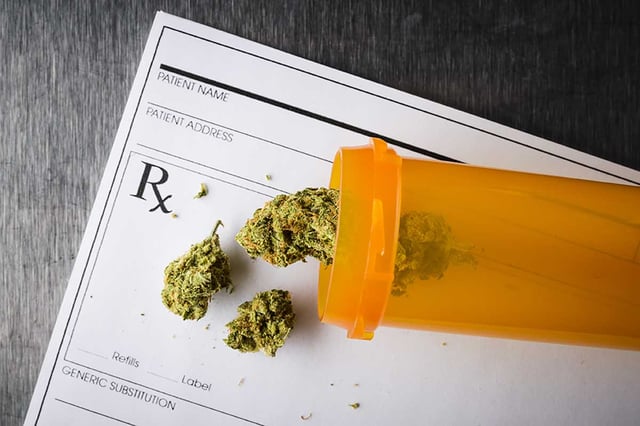As more states legalize the use of Marijuana there may be some special considerations your community association should address. Marijuana's medicinal properties began to change the playing field and now both medical and recreational marijuana is legal in several states including California, Nevada, Oregon, Washington, Colorado, Alaska, Illinois, Vermont, Maine, and Massachusetts. There are still plenty of laws limiting where and when marijuana can be present or used and it may affect common areas in your community sooner than you think.

Whether you are a neighborhood or condo building, if your HOA is in a medically legal or recreationally legal state, it's time to start considering your neighborhood marijuana policies. What should you community and board consider before making any new rules for residents?
You May Be Required to Ban Smoking in Some Areas
Every state has different laws and, of course, your HOA rules must conform to the laws of your state. This means you may be required to write and/or enforce a few restrictions. Colorado, for example, has a Clean Indoor Air Act that prohibits any kind of smoking in an enclosed public area. This means shared spaces like your clubhouse, pool showers, and entryways cannot be smoked in, for Colorado communities. Many states have laws against openly smoking marijuana in a place that might influence others, especially children, to do the same. Finding your state's marijuana laws online can be dubious, so make sure that you talk to your HOA attorney or licensed community professional about what your state has to say about smoking.
Medical Marijuana Must be Permitted in Private
There will also be situations where you simply can't enforce a marijuana ban. Marijuana may be a hot-button controversial issue, but its use as a non-toxic medication has proven efficacy for many ailments. You may already know that marijuana can ease the suffering of cancer patients without the harm of opiate painkillers. Epileptics have found that it reduces seizures without the organ damage of seizure medication. It's also, unsurprisingly, used to help patients with life-threatening eating disorders and nausea-causing conditions that otherwise prevent eating.
Whether or not you personally agree with its use, marijuana is now legally classified as a medicine in many states and you cannot completely ban it from the private residences in your community any more than you could ban antibiotics or aspirin. So if your community wants to regulate marijuana use you need to ensure that you aren't violating any rights the owners may have to use it privately.
Public Nuisance Smoke Doesn't Just Apply to Marijuana
Another important consideration is that you can't treat marijuana smoking any differently than you treat cigarette smoking. If your HOA already has second-hand-smoking and nuisance-smoking regulations, fall back on these for your marijuana policies as well. You can absolutely protect your neighborhood and individual neighbors from the displeasure or health risks of second-hand smoke. No matter what kind of smoke that is. You may not be able to stop residents from smoking in their homes, but many HOAs have required steps to be taken to prevent smoke from traveling from unit to unit or leaving the resident's property.
In fact, HOAs that already have smoke policies may not need to change their CC&Rs at all for marijuana. Simply enforce the rules already in place about smoke and its nuisance issues.
Fielding the Inevitable Complaints
That said, having regulations on hand (whether you write new ones or apply existing rules) is going to be handy. Even if your HOA council decides to mostly leave the marijuana issue to the residents, there will always be someone who complains. Every community has at least one person who will call in if they even imagine that they can smell a neighbor "smoking pot".
Your HOA will need to decide if smelling marijuana constitutes a nuisance, or if a nuisance is only committed if actual smoke and the associated health risks are present. Your HOA will need to decide how far smoke (or smell) must drift before it can officially bother another resident.
Marijuana Use that is Not Smoking
Most people assume that marijuana use means smoking, and even this article is mostly meant to address those concerns, but that's not the whole story. The legalization has also allowed the industry to develop many, arguably healthier alternatives. Vaping, for example, does not create smoke and the associated smell is much weaker. The many senior patients who use marijuana for aches and pains often enjoy edibles, medical beverages, and tinctures or vitamin-like supplements instead. CBD, a low or non-THC-containing version of the plant is widely available online and in storefronts across the country.
Any type of marijuana use that is private in the home and is not smoking likely doesn't need to be regulated. But it will be up to you to decide if neighbors can complain about each other's cooking smells, should weed be baked which is often a sticking point for many.
Should you regulate marijuana use in your HOA neighborhood? Every HOA will want to have its policies on smoking and smell complaints ready, as there will almost inevitably be a few complaints. But there is usually very little need to regulate marijuana use itself. Just get your policies on smoke and smell hammered out and apply them fairly across the board. For more insights on HOA policies and best practices, contact us today!

